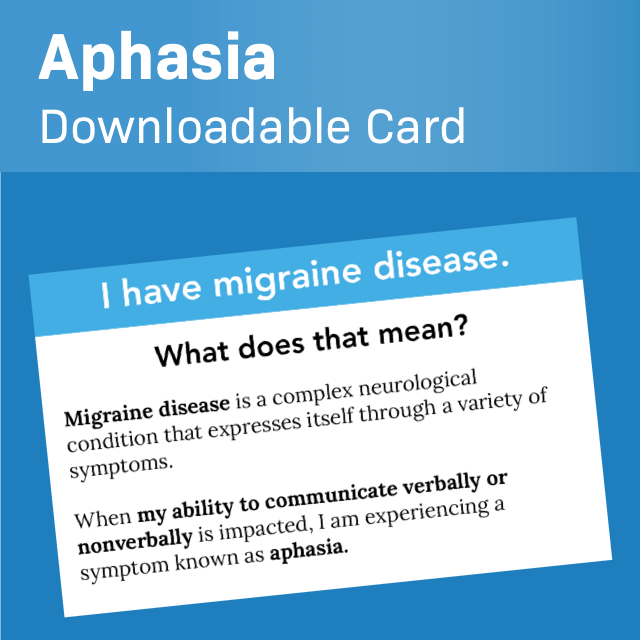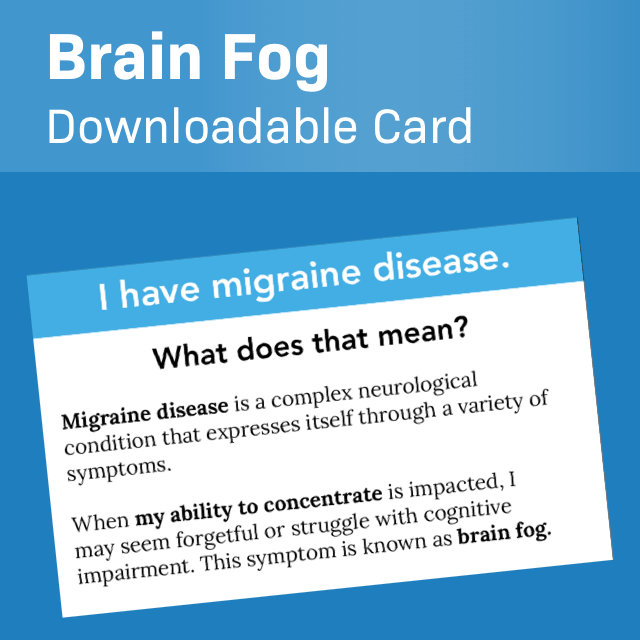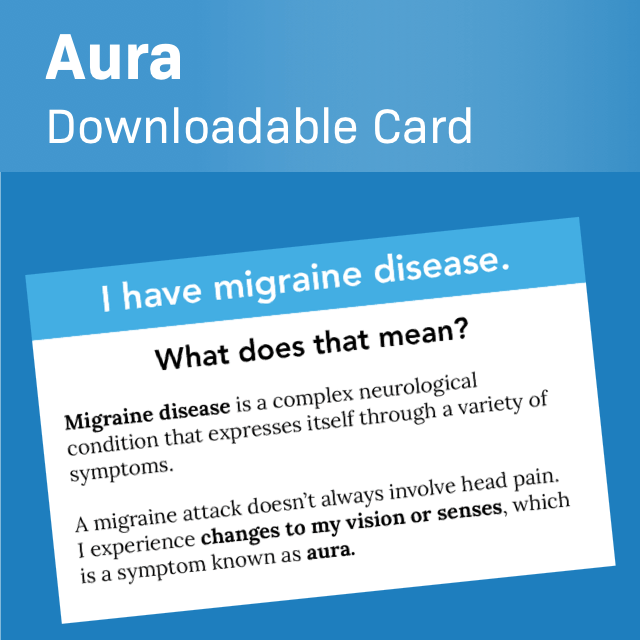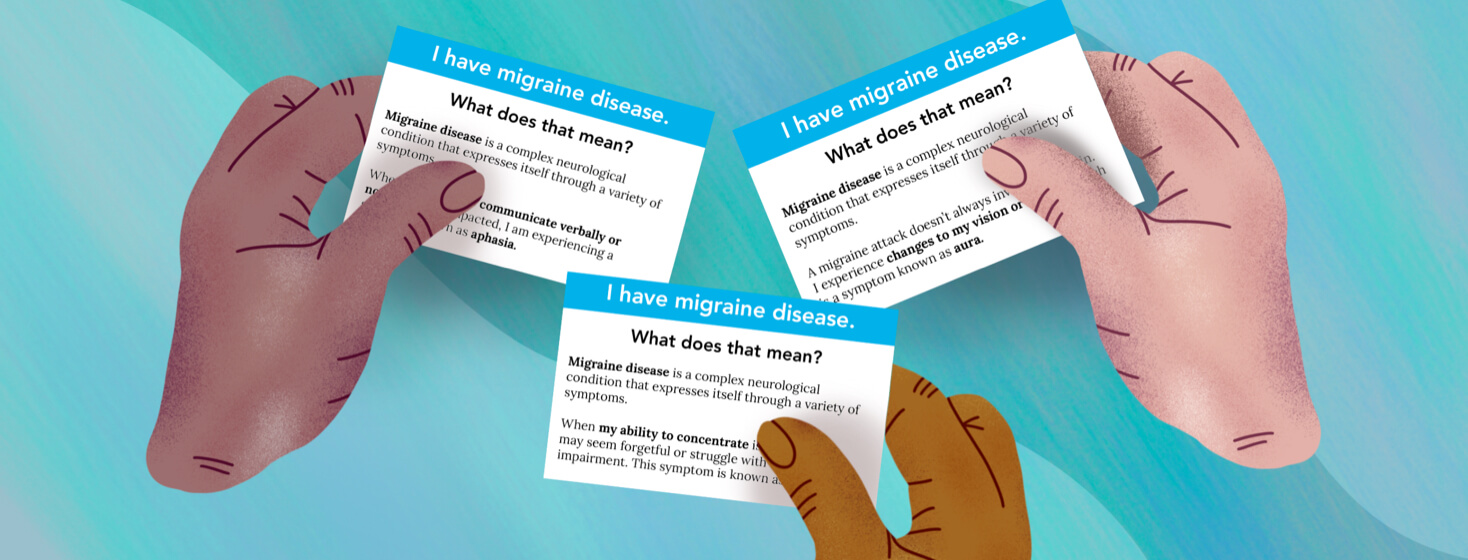A Community Member's Awareness-Raising Handouts

I chatted with Migraine.com community member Holly Hall, who has been living with migraine for as long as she can recall, which became chronic over a dozen years ago. Constant aura results in her needing to stay home most of the time except for important errands and appointments.
How does she handle aphasia when she's out?
It was on one such errand that the idea to create an informational handout that would serve to raise awareness and support about migraine and aphasia first occurred to her. Her migraine attacks come on suddenly and leave her disoriented and unable to communicate. She designed these handouts to reflect her specific challenges and needs. The materials came in handy quite quickly.
What do her handouts say?
I have severe migraine disorder.
- If I have a migraine spike, the pain and overstimulation may make me confused and/or disoriented.
- I may not be able to speak well, or I may not be able to speak at all.
- This is not unusual, nor is it overly alarming.
Please show me to a place to stand out of the way, and I should be OK in a few minutes.
If I should “fade out” or am noticeably confused...
- Do not call an ambulance at this point. This is temporary and looks worse than it is.
- It’s a neurological episode that comes from a migraine spike.
- I will come back to myself within a few minutes, so please just give me some time.
- I should be OK shortly…and then I’ll be able to tell you how I need to proceed.
Please show me to a place to stand out of the way, and I should be OK in a few minutes.
IF this does not begin to resolve in 15 minutes, please call 911.
*Responders: I am allergic to _____________.
Do her migraine handouts help?
“When I was at Publix, I was able to hand the migraine card to someone who showed me to a bench. And fortunately, I did come back to being able to talk well enough to communicate, and it went no further. Although the cloudy-headedness remained, I managed to find my ride and get home,” Hall said.
These days, Hall uses her aphasia handout more frequently than the migraine one. “When I interact with others, now almost constantly, I cannot talk more than a sentence or two before it sets in, so I hand out the aphasia cards. Typically they will read it and then hand it back. It seems to be very helpful. They relax and nod and hand it back. The atmosphere between us changes. They still want me to continue, so they then will say, ‘It’s all right – take your time.’”
Who else faces this issue?
Hall’s experience of being out and about in the world when a migraine hits fast and hard is not unique. Many of us can relate to this reality in which we find ourselves symbolically cornered - incapable of communicating, disoriented, and perhaps a bit lost. How do we navigate our way through a conversation with the grocer trying to check out our items? What if we can’t answer their questions? What if we cannot remember where we parked? A simple errand can quickly turn into a frightening encounter.
Download our printable migraine symptom cards!

Download the printable aphasia card

Download the printable brain fog card

Download the printable aura card
Or make your own!
Hall’s examples offer a great template for informational/awareness-raising cards on both migraine and aphasia. It is wonderful when we can provide information that also inspires compassion. It may behoove you to consider creating your own cards that are tailor-made to your symptoms and then having some printed so they can be easily handed out. For another example, the Cluster Headache Support Group has cards like these for sale online.
Share your thoughts in the comment section: Does this idea work for you? Could you see yourself passing out cards like these in your life? And if so, would you rather have these kinds of cards pre-created, so all you have to do is print them out, or would you like to make your own? Do you already employ a strategy like this in your life? We want to learn from you!

Join the conversation